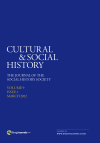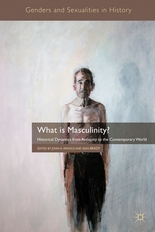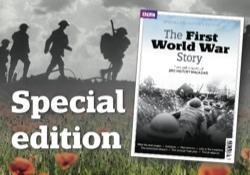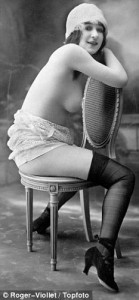Books
 Captives of War. British Prisoners of War in Europe in the Second World War (Cambridge University Press, 2017)
Captives of War. British Prisoners of War in Europe in the Second World War (Cambridge University Press, 2017)
This pioneering study explores the experiences and emotional lives of British prisoners of war in Germany and Italy during the Second World War. It has been shortlisted for the 2018 Templer Medal First Book Prize. Reviews to date of Captives of War are listed here.
Book chapters
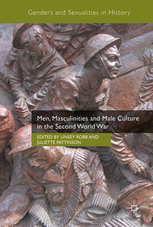 ”Pinky Smith looks gorgeous!’ Female impersonators and male bonding in prisoner of war camps for British servicemen in Europe’ in Men, Masculinities and Male Culture in the Second World War (eds) Juliette Pattinson and Linsey Robb (Palgrave Macmillan, 2017)
”Pinky Smith looks gorgeous!’ Female impersonators and male bonding in prisoner of war camps for British servicemen in Europe’ in Men, Masculinities and Male Culture in the Second World War (eds) Juliette Pattinson and Linsey Robb (Palgrave Macmillan, 2017)
Female impersonators were a familiar sight in prisoner of war (POW) camps, appearing in theatre productions, at dances, at tea parties as ‘waitresses’ and in auctions to raise money for welfare funds. This essay explores British POWs’ reactions to them, as an insight into conceptions of sexuality and gender during the Second World War.
Journal articles
This article explores soldiers’ brothel visits in France: their reasons for attending the ‘licensed brothels’ (maisons tolérées) and how their visits varied according to the soldiers’ marital status and rank. It then considers how prostitution in the First World War may have transformed heterosexual behaviour, particularly with regard to the use of amateur or professional prostitutes.
Chapters in edited volumes
”Pinky Smith looks gorgeous!’ Female impersonators and male bonding in prisoner of war camps for British servicemen in Europe’ in Men, Masculinities and Male Culture in the Second World War (eds) Juliette Pattinson and Linsey Robb (Palgrave Macmillan, 2017).
This chapter argues that warfare provides gender historians with a unique insight into conceptions of masculinity through the documentation of experiences that may have gone unrecorded in peacetime. By focusing on masculinity as experience, it shows that during this era, there was a diversity of acceptable masculine behaviours and how conceptions of masculinity were informed by a man’s marital status, rank, nationality and race which, at times, superseded patriarchal forces.
Magazines and newspapers
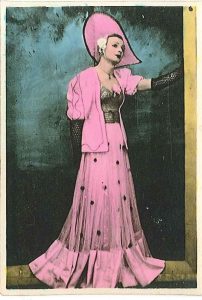 ‘Just like the Real Thing’, History Today (December, 2017), pp. 36-47.
‘Just like the Real Thing’, History Today (December, 2017), pp. 36-47.
This feature looks at the release servicemen found in female impersonation in POW camps in Europe in the Second World War.
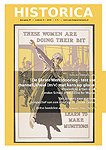 ‘Sexing up the First World War Centenary’. Remembering the visits of British soldiers to brothels during the Great War’, Historica, 3 (2014), pp. 25-28.
‘Sexing up the First World War Centenary’. Remembering the visits of British soldiers to brothels during the Great War’, Historica, 3 (2014), pp. 25-28.
In June 2014, I spoke at the UCL Lunch Hour Lecture series on the visits of British soldiers to maisons tolérées, or licenced brothels, in the First World War. My lecture uncovered soldiers’ reasons for visiting brothels, their reactions to them and the prostitutes, and how they dealt with the potential consequences: venereal disease. I also discussed how it is important to remember this subject as part of the Centenary, since it questions some of today’s dominant narratives of the First World War.
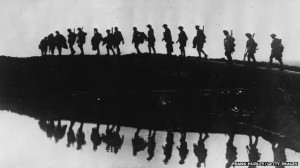 WW1 brothels: Why troops ignored calls to resist ‘temptation’, BBC online, 27 February 2014.
WW1 brothels: Why troops ignored calls to resist ‘temptation’, BBC online, 27 February 2014.
Why British soldiers visit brothels, in their own words.
Drawing upon the testimonies of First World War soldiers, this feature offers an insight into how visiting brothels help them cope with the constant presence of death.
Telling the story in their own words, this article examines why British soldiers visited brothels in the First World War, what happened during their visit (in addition to the obvious) and what consequences they suffered afterwards.
Blogs
This article reveals how my grandfather inspired my book on prisoners of war.

